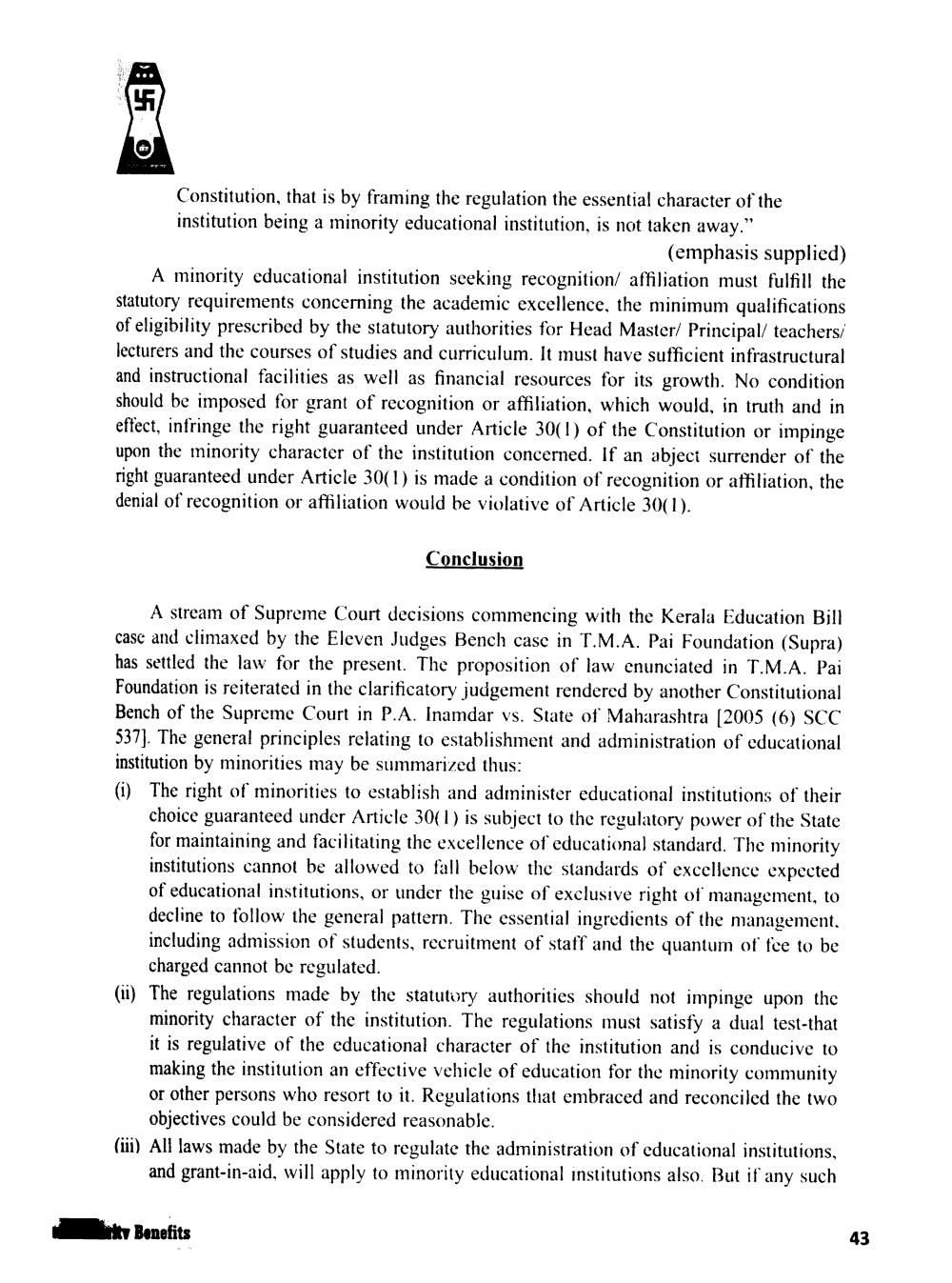________________
Constitution, that is by framing the regulation the essential character of the institution being a minority educational institution, is not taken away."
(emphasis supplied) A minority educational institution seeking recognition/ affiliation must fulfill the statutory requirements concerning the academic excellence, the minimum qualifications of eligibility prescribed by the statutory authorities for Head Master/ Principal/ teachers/ lecturers and the courses of studies and curriculum. It must have sufficient infrastructural and instructional facilities as well as financial resources for its growth. No condition should be imposed for grant of recognition or affiliation, which would, in truth and in effect, infringe the right guaranteed under Article 30(1) of the Constitution or impinge upon the minority character of the institution concerned. If an abject surrender of the right guaranteed under Article 30(1) is made a condition of recognition or affiliation, the denial of recognition or affiliation would be violative of Article 30(1).
Conclusion
A stream of Supreme Court decisions commencing with the Kerala Education Bill case and climaxed by the Eleven Judges Bench case in T.M.A. Pai Foundation (Supra) has settled the law for the present. The proposition of law enunciated in T.M.A. Pai Foundation is reiterated in the clarificatory judgement rendered by another Constitutional Bench of the Supreme Court in P.A. Inamdar vs. State of Maharashtra (2005 (6) SCC 537). The general principles relating to establishment and administration of educational institution by minorities may be summarized thus: (i) The right of minorities to establish and administer educational institutions of their
choice guaranteed under Article 30(1) is subject to the regulatory power of the State for maintaining and facilitating the excellence of educational standard. The minority institutions cannot be allowed to fall below the standards of excellence expected of educational institutions, or under the guise of exclusive right of management, to decline to follow the general pattern. The essential ingredients of the management. including admission of students, recruitment of staff and the quanturn of fee to be
charged cannot be regulated. (ii) The regulations made by the statutory authorities should not impinge upon the
minority character of the institution. The regulations must satisfy a dual test-that it is regulative of the cducational character of the institution and is conducive to making the institution an effective vehicle of education for the minority community or other persons who resort to it. Regulations that embraced and reconciled the two
objectives could be considered reasonable. (iii) All laws made by the State to regulate the administration of educational institutions,
and grant-in-aid, will apply to minority educational institutions also. But if any such
Betty Benefits
A




